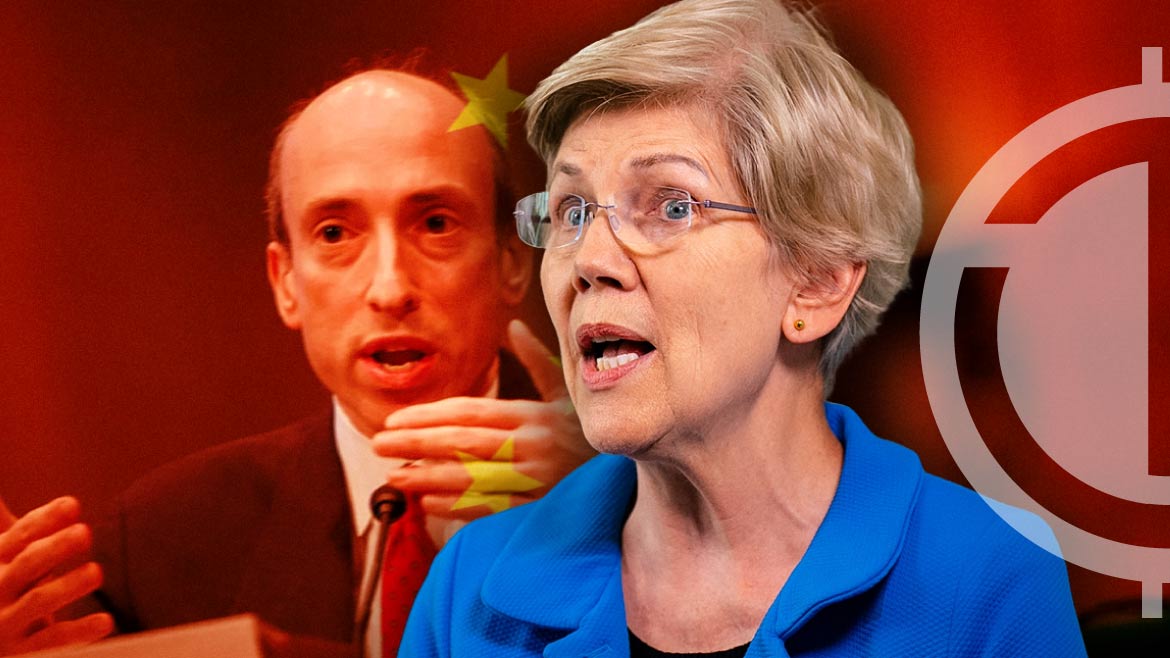- Sen. Warren faces scrutiny for allegedly covering up financial misconduct by Chinese executives and anti-crypto actions.
- Gary Gensler’s views on crypto ETFs have notably shifted after his appointment as SEC Chair, raising community concerns.
- The evolving regulatory landscape of cryptocurrencies is mired in complexities, legal challenges, and potential conflicts.
Senator Elizabeth Warren, a prominent member of the Senate Banking Committee, is under scrutiny for her alleged involvement in covering up US capital market misdeeds by Chinese executives as expressed on Twitter by Brian Costello, a leading figure in the blockchain sector. Moreover, new evidence has emerged, suggesting potential collusion with financial entities against cryptocurrency interests.
Senator @ewarren is knowingly allowing her buddy, @GaryGensler, Chair of @SECGov, to cover-up US capital market crimes by Chinese executives. All while she is a top member of Senate Banking committee, responsible for overseeing SEC. Because of her corrupt failure, @MassPRIM is… https://t.co/1F6mlGavWV
— Brian Costello (@bpcostello) October 29, 2023
Interestingly, Gary Gensler, the Chair of the SEC and an ally of Senator Warren, previously expressed skepticism over the SEC’s stance on Bitcoin ETFs. Before his SEC appointment, a 2019 video from the MIT Bitcoin Expo reveals Gensler discussing this inconsistency.
He noted the existence of Bitcoin and Ethereum futures while pointing out the absence of Bitcoin ETFs. His observations found resonance during a dialogue with SEC Commissioner Hester Peirce, where he highlighted the substantial similarity between the laws governing these financial instruments, despite not being identical.
Consequently, the crypto community on platforms like Twitter is emphasizing the discrepancy between Gensler’s current and previous views. Zack Voell, a market analyst, humorously noted, that Gary Gensler said Gary Gensler was wrong.
Gary Gensler says Gary Gensler is wrong. pic.twitter.com/sHGzHcUyIC
— Zack Voell (@zackvoell) October 28, 2023
Since 2017, the SEC has continuously rejected spot Bitcoin ETF applications. Significantly, this trend continues under Gensler’s leadership. He has delayed or denied recent applications, suggesting a lack of market manipulation protection. However, Gensler’s SEC faced legal action when they rejected Grayscale’s attempt to convert its Bitcoin trust into a spot ETF. A court deemed the SEC’s decision as arbitrary and capricious.
Additionally, concerns about Senator Warren’s actions add another layer of intrigue. Accusations involve collaboration with short seller Marc Cohodes to impact Silvergate-Signature-SVB bank operations due to their cryptocurrency connections. Besides, allegations have emerged suggesting Senator Warren’s collusion with entities like the FDIC, Treasury, and OCC to enact measures against cryptocurrency.
There are also murmurs about a planted WSJ story, which was later redacted, attributing President Biden’s Iran challenges to cryptocurrency. Senator Warren has yet to respond. Hence, as the landscape of cryptocurrency regulation continues to evolve, these revelations and allegations highlight the complexities and potential conflicts of interest at play.






